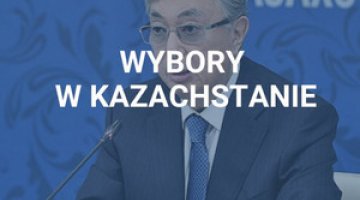Analyses
Kazakhstan: the OSCE summit
On 1-2 December, a summit of the OSCE’s leaders took place in Astana. The way it was held, and the lack of any real results, confirm that this organisation is in crisis. Nevertheless, the mere fact that the summit occurred should be considered a success for Kazakhstan. Leading and hosting the summit helped Astana step forward in the role of an ambitious and active player on the international scene.
The summit in Astana was an initiative of President Nazarbayev; it was the first OSCE meeting since 1999 to be held at such a high level. 28 leaders of the 56 member states participated (the other countries were represented by lower-ranking delegations) and representatives of the UN, EU, CIS, the Shanghai Cooperation Organisation and other international organisations also attended. Contrary to declarations, the summit failed to approve a Plan of Action for the organisation, nor was any progress announced on the question of the Karabakh conflict. The end of the summit was delayed for almost 12 hours by disputes over the final resolution (these included Georgia forcing through a reference to its territorial integrity, which Russia strongly opposed). As a result, the main message of the Astana Declaration in its finally approved form was that the OSCE will continue to operate according to its current rules.
Although the summit in Astana was not a pivotal event for the OSCE, it was a success from the standpoint of Kazakhstan. Both Kazakhstan’s chairmanship of the OSCE and its organisation of this level of meeting were unprecedented events, not only in Central Asia, but for the entire CIS.
They represented a great organisational effort for Kazakhstan, as well as a specific impulse to modernisation and a positive test of how the entire state apparatus would perform. Thanks to its chairmanship of the OSCE summit, Astana has confirmed its position as an active and ambitious player on the international scene, and has increased its chances of successfully lobbying for its initiatives. <wol>



